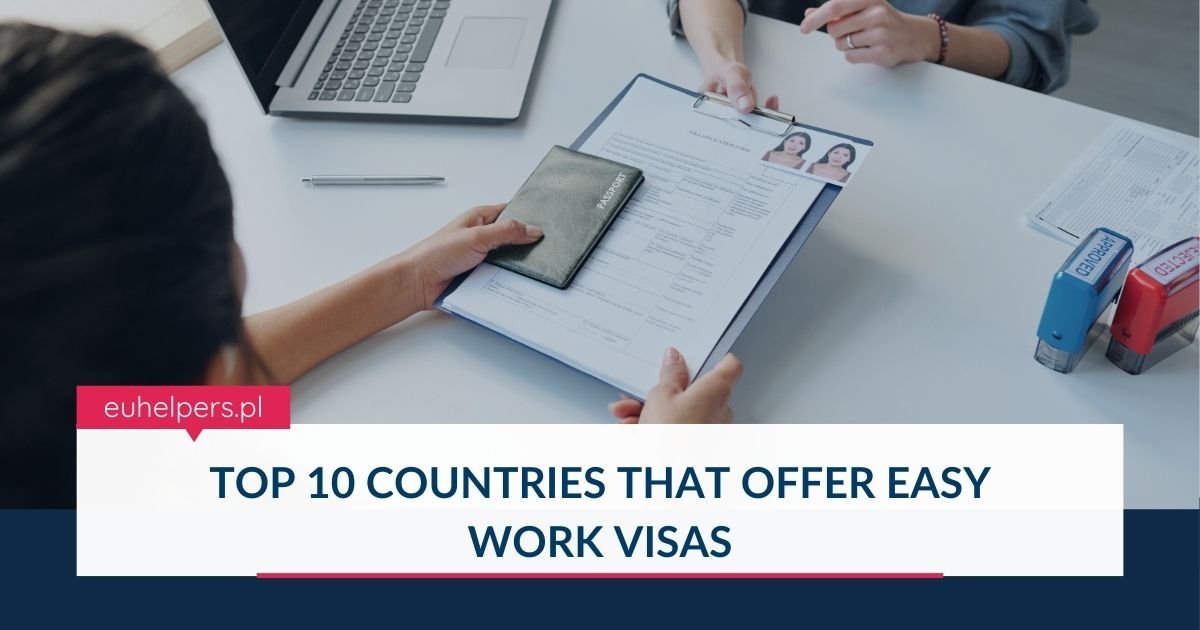Europe remains one of the most attractive destinations for professionals seeking career opportunities abroad. While work visa procedures can often be complex, several European countries are making the process more accessible, offering streamlined policies and welcoming foreign talent into their job markets. Among the easiest options for 2025 are Germany, Portugal, and Estonia, though other nations such as Poland, Czech Republic, Spain, the Netherlands, Lithuania, Hungary, and Slovakia are also emerging as strong contenders.
Top Countries with Easier Work Visa Options
1. Germany
Germany’s robust economy and demand for skilled professionals—particularly in engineering, IT, healthcare, and manufacturing—make it a top choice for foreign workers. The EU Blue Card remains a popular route for qualified candidates, offering a relatively straightforward pathway to both work and residency.
2. Portugal
Portugal has positioned itself as one of Europe’s most foreigner-friendly nations. Its digital nomad visa and policies designed to attract overseas talent in tourism, agriculture, IT, and healthcare make it especially appealing for both remote workers and skilled professionals.
3. Estonia
Known as one of Europe’s most tech-driven nations, Estonia offers simplified visa procedures, particularly tailored for professionals in the IT and digital sectors. Its reputation as a digital-first country makes it ideal for tech-savvy workers seeking a smooth relocation.
4. Poland
Poland is gaining popularity for its accessible work permits that cater to both skilled and unskilled labor. Opportunities are abundant in construction, manufacturing, and logistics, making it a practical choice for a wide range of workers.
5. Czech Republic
The Czech Republic stands out for its straightforward work permit system, with strong demand for professionals in IT and industrial sectors. Its central European location also makes it attractive for those who value connectivity across the EU.
6. Spain
Spain’s relaxed visa policies and rising demand for workers in healthcare, IT, and tourism position it as a welcoming destination. Beyond professional opportunities, its lifestyle and climate are added bonuses for expats.
7. Netherlands
The Netherlands offers streamlined visa routes for skilled workers, with particular emphasis on logistics, agriculture, and food processing. The country’s international work culture and English-friendly environment make integration easier.
8. Lithuania
Lithuania is quickly gaining traction among foreign workers thanks to its simplified visa processes and affordable cost of living. It is an increasingly attractive option for those seeking career growth in a smaller but dynamic European economy.
9. Hungary
Hungary is actively working to attract foreign talent, offering more accessible work visas in agriculture, logistics, IT, and tourism. Its central location in Europe also provides strong business opportunities.
10. Slovakia
Slovakia has begun welcoming more foreign professionals through its growing demand for skilled labor. Simplified processes and a rising job market make it an increasingly viable destination for workers in 2025.
Key Factors to Consider Before Choosing a Country
When deciding which European country best suits your career goals, keep the following in mind:
-
Skills and Qualifications: Some nations prioritize workers in specific industries. Aligning your expertise with these demands can make the visa process smoother.
-
Visa Types: Each country offers multiple visa options. Research carefully to find the category that best matches your circumstances.
-
Processing Times: Application timelines differ widely. Plan ahead to avoid unnecessary delays.
-
Language Requirements: Certain countries may expect proficiency in their national language for specific roles.
-
Cost of Living: Beyond the visa, ensure that the country’s living expenses align with your financial goals.
In 2025, Europe presents a wide array of opportunities for professionals looking to advance their careers abroad. Whether you’re drawn to the strong economies of Germany and the Netherlands, the digital-forward policies of Estonia, or the affordability of Lithuania and Poland, understanding each country’s visa landscape will help you make the best decision for your future.

